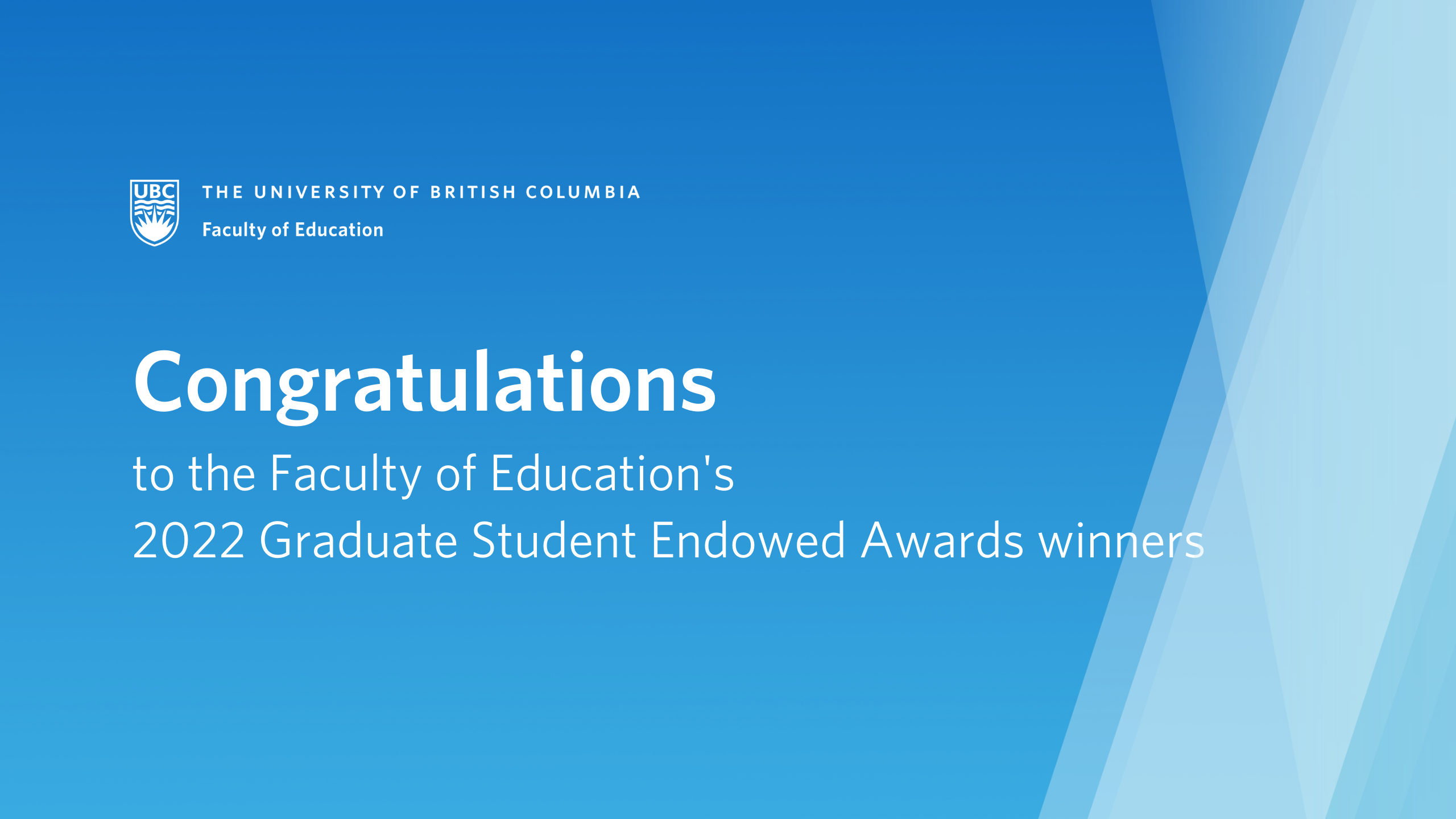How can we respond to the needs of immigrant and refugee children, youth and their families?
Staff Professional Development Session: WordPress Security | January 27, 2023

About the Session
Do you have questions about the security of information and documents you are collecting or sharing via WordPress? Do you know how to prevent security breaches? Join us to hear from Aaron Heck, Senior Manager, Solutions Security and Architecture, UBC IT, as he advises us on WordPress security, requirements for remediation, what controls to put in place to prevent breaches from happening, and standards compliance. This session is designed for both new WordPress users and seasoned professionals.
Date
Friday, January 27, 2023
Time
9:30 to 10:30 am PT
Platform
via Zoom (RSVP to receive the Zoom link)
RSVP
2022 Graduate Student Endowed Awards Winners
January 9, 2023

The Office of the Associate Dean, Academic, Graduate and Innovation is pleased to announce the following graduate student award winners in the 2022 Graduate Student Endowed Awards competition:
Dean of Education Scholarship
Alexis Webster (ECPS)
Anastasia Zhuravleva (LLED)
Ariane Faria dos Santos (EDCP)
Brook Hadwen (KIN)
Brook Haight (KIN)
Gregg Eschelmuller (KIN)
Jamie Hawke (KIN)
Johanna Mickelson (ECPS)
Katharine McCloskey (ECPS)
Kieran Forde (EDCP)
Liam Foulger (KIN)
Lisa Trainor (KIN)
Makayla Freeman (ECPS)
Martin Dammert Freundt Thurne (ECPS)
Mohosina Jabin Toma (EDCP)
Naoki Takemura (EDCP)
Patricia Unung (EDCP)
Sarah Skinner (ECPS)
Serikbolsyn Tastanbek (LLED)
Tayler Colton (ECPS)
Xuyan Tang (ECPS)
Donald and Ellen Poulter Scholarship
Asma Afreen (LLED)
Guanyu Chen (ECPS)
Sarah Panofsky (ECPS)
Tonje Molyneux (ECPS)
Joseph Katz Memorial Scholarship
Amir Michalovich (LLED)
Lee Iskander (EDCP)
Lori Huston (EDCP)
Zhen Lin (LLED)
Janusz Korczak Association of Canada Graduate Scholarship in Children’s Rights and Canadian Indigenous Education
Lori Huston (EDCP)
Jimmar Memorial Scholarship in Education
Kyle Missen (KIN)
LOMCIRA Harold Covell Memorial Scholarship
Zhen Lin (LLED)
Mary Elizabeth Simpson Scholarship
Ryosuke Aoyama (LLED)
Stephen Busch (KIN)